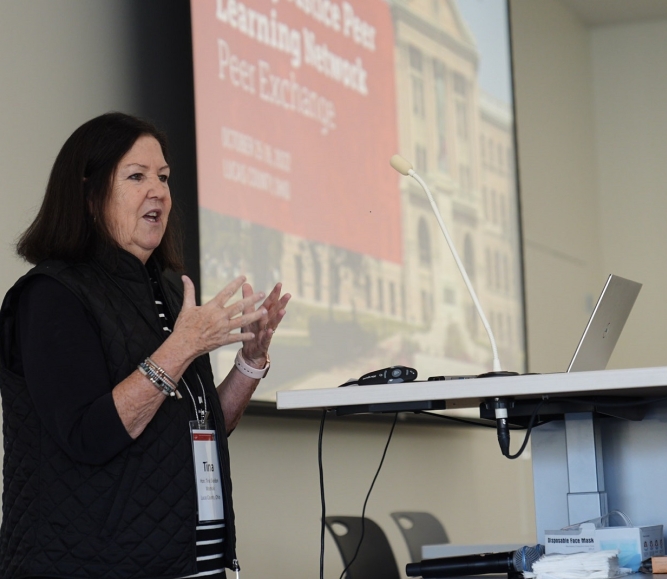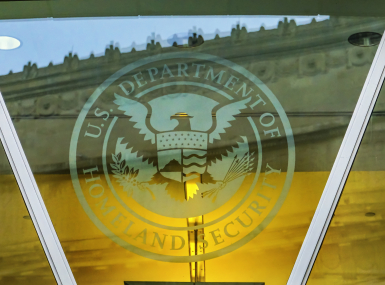Counties Building Safe and Healthy Communities: 12 Impact Stories

Upcoming Events
Related News
Counties across the country are developing policies, practices and programs to reduce the overuse and misuse of the criminal legal system for community members living with behavioral health conditions, such as mental illness and substance use disorder.
As part of John D. and Catherine T. MacArthur Foundation’s Safety and Justice Challenge, the National Association of Counties (NACo) created a County Justice Peer Learning Network (PLN) to support county leaders – as a key constituency for justice reform – from January 2020 to October 2022. Counties participating in the PLN developed and implemented action plans to reduce the number of community members with behavioral health conditions involved in the legal system and identify and eliminate racial and ethnic disparities.
Between January 2020 and October 2022, of the 12 Peer Learning Network sites developing policies, practices and programs to better serve community members with behavioral health conditions, enhance public safety and reduce racial and ethnic disparities in the criminal legal system:
- 10 opened, approved or explored developing a crisis triage center
- 10 deployed, piloted or discussed implementing mobile crisis teams
- 8 launched behavioral health programs to assist people in jail
- 6 partnered with local universities to support research activities and data-driven decision making
- 9 dedicated a combined $38.3 million of American Rescue Plan Act (ARPA) Recovery Funds towards public safety and behavioral health programs and improvements
- 7 established data dashboards, and
- 6 launched or enhanced initiatives focused on racial equity.
The report outlines the accomplishments of the PLN members in supporting vulnerable residents, reducing the local jail population and addressing racial and ethnic disparities.
Hear from a Few PLN Members About the Impact of Participating in the Network
“The peer learning network helps us to see how we can maybe avoid having people end up incarcerated and have help with mental health issues and with drug and alcohol issues.”
– Nancy Coffey, Supervisor, Eau Claire County, Wis.
“The peer learning network has been an amazing experience for us because it gives us a sense of community and also helps us understand that we are not alone in the many issues that we are tasked with facing and addressing each and every day for the residents we serve.”
– Ruchelle Pride, Director, Office of Justice Policy & Programs, Franklin County, Ohio
“Something I love about the peer learning network model is that it’s about open-source information sharing so it's about […] really being collaborative and sharing information openly to figure out where the gaps and opportunities are.”
– Shannon Reid, Chair, Board of Commissioners, Douglas County, Kan.
“There is nothing that can take the place of in-person engagement. Coming to visit on-site and seeing what other counties are doing that are implementing innovative and best practices. And being with other elected officials, staff members from other counties and the NACo staff, and all of the conversations that you have in person are incredibly valuable.”
– Wendy Jacobs, Vice-Chair, Board of Commissioners, Durham County, N.C.
“That is why I went […] to learn what I can do in Newton County; to bring it back to work […] with our sheriff’s department, our law enforcement, our judicial system to find out what we can do to provide for those residents that need our help and assistance.”
– Alana Sanders, Commissioner, Newton County, Ga.
“To see something that’s being done in another area, I hope to gain tools that we can bring back and put into action where I am.”
– Sandra Bankston, Justice Manager, State’s Attorney’s Office/Living Room Wellness Center, Lake County, Ill.
“The peer learning network is important as far as learning how do we reduce our jail population to keep those who don’t need to be in jail out of jail and getting the services they need in the community and making sure it is sustainable.”
– Dave Riewestahl, Captain/Jail Administrator, Eau Claire County, Wis.
County News
Justice Peer Learning Network explores keeping mentally ill from jail





